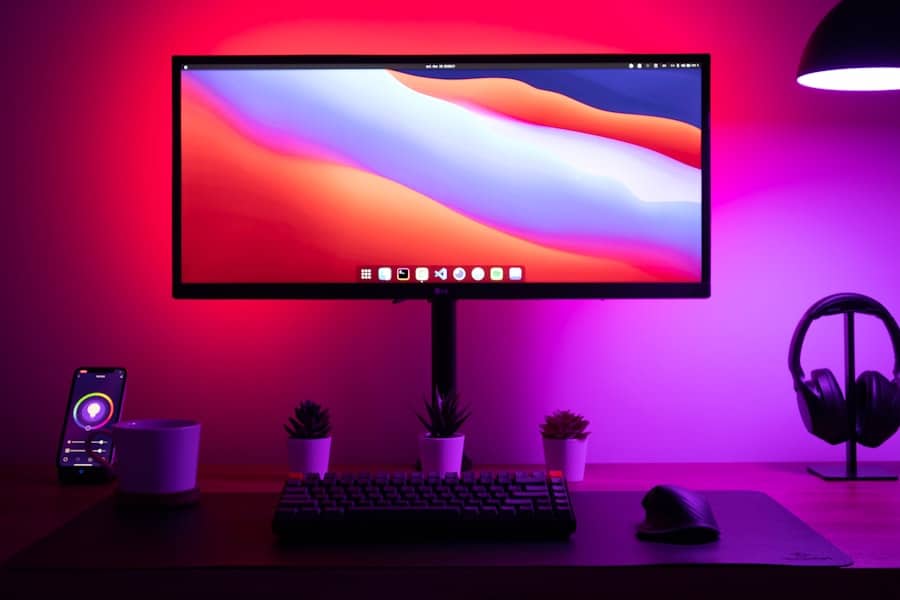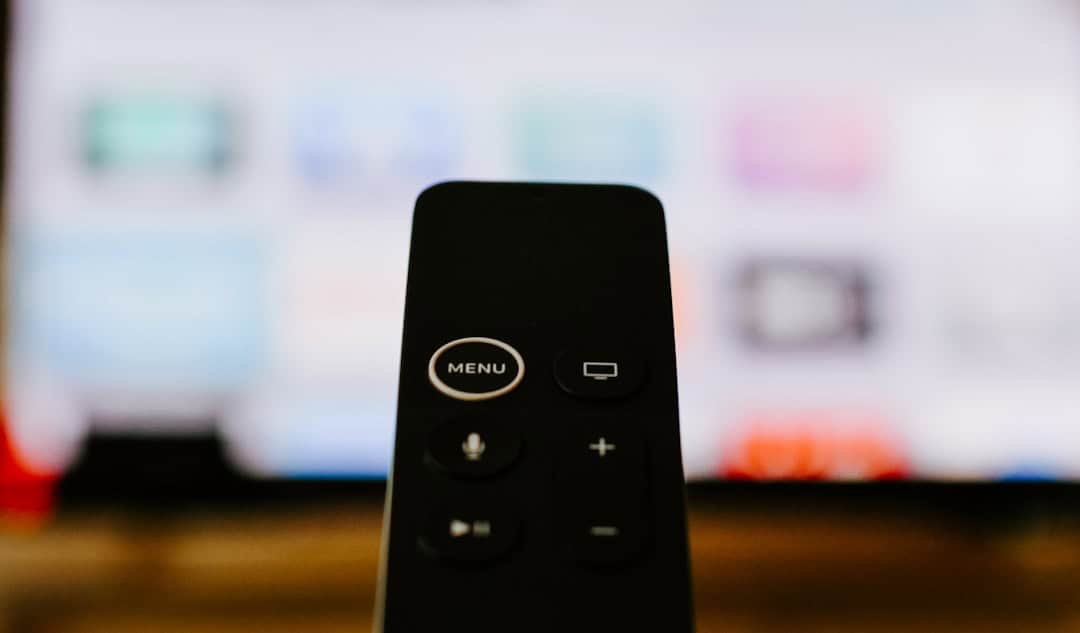The Internet of Things (IoT) has revolutionized various sectors, and home entertainment systems are no exception. At its core, IoT refers to the interconnection of everyday devices to the internet, allowing them to send and receive data. This connectivity enables a seamless integration of technology into our daily lives, enhancing convenience and efficiency.
In the realm of home entertainment, IoT has transformed traditional setups into smart ecosystems that can be controlled remotely, customized to individual preferences, and automated for optimal performance. Home entertainment systems have evolved from simple audio-visual setups to complex networks of devices that include smart TVs, streaming devices, sound systems, and gaming consoles. The integration of IoT technology into these systems allows for a more cohesive user experience.
For instance, users can now control their entire entertainment setup through a single interface, whether it be a smartphone app or a voice-activated assistant. This shift not only simplifies the user experience but also opens up new possibilities for how we consume media and interact with our devices.
Key Takeaways
- IoT is revolutionizing home entertainment systems by enabling seamless connectivity and control of devices.
- Integration of IoT devices in home entertainment systems allows for a more streamlined and efficient user experience.
- IoT enables users to control and manage their home entertainment systems remotely, providing convenience and flexibility.
- Personalized user experiences are made possible through IoT, as it allows for customization and tailored content recommendations.
- Automation and smart features in home entertainment systems with IoT enhance convenience and efficiency, making the user experience more enjoyable.
Integration of IoT Devices in Home Entertainment Systems
The integration of IoT devices into home entertainment systems is a multifaceted process that involves various technologies working in harmony. Smart TVs are often at the forefront of this integration, equipped with built-in Wi-Fi and the ability to connect to streaming services like Netflix, Hulu, and Amazon Prime. These televisions can communicate with other smart devices in the home, such as speakers and lighting systems, creating an interconnected environment where everything works together seamlessly.
Moreover, devices like smart speakers have become essential components of modern home entertainment systems. They not only serve as audio output devices but also act as hubs for controlling other IoT devices. For example, a user can ask their smart speaker to play music from a specific service while simultaneously dimming the lights or adjusting the thermostat.
This level of integration enhances the overall experience by allowing users to create an ambiance tailored to their preferences without needing multiple remotes or apps.
Control and Management of Home Entertainment Systems through IoT

One of the most significant advantages of IoT in home entertainment systems is the ability to control and manage devices remotely. With the proliferation of mobile applications designed for smart home management, users can operate their entertainment systems from virtually anywhere. For instance, a user can start streaming their favorite show on their smart TV while commuting home, ensuring that it’s ready to watch as soon as they arrive.
Voice control has also emerged as a game-changer in managing home entertainment systems. Virtual assistants like Amazon Alexa, Google Assistant, and Apple’s Siri allow users to issue commands verbally, making it easier to navigate through content without needing to interact with a remote or touchscreen. This hands-free approach is particularly beneficial during activities like cooking or cleaning when users may not have their hands free to operate devices manually.
Personalized User Experience with IoT in Home Entertainment Systems
Personalization is a key feature that IoT brings to home entertainment systems. By leveraging data analytics and machine learning algorithms, these systems can learn user preferences over time and make tailored recommendations. For example, streaming services can analyze viewing habits to suggest new shows or movies that align with a user’s interests.
This level of customization enhances user engagement and satisfaction, as individuals are more likely to discover content that resonates with them. Additionally, IoT-enabled home entertainment systems can adapt to different users within the same household. Smart TVs can recognize who is watching based on voice profiles or user accounts, allowing for personalized content suggestions and settings.
This capability ensures that each family member enjoys a unique experience tailored to their tastes, whether it’s a child watching cartoons or an adult streaming the latest blockbuster.
Automation and Smart Features in Home Entertainment Systems with IoT
Automation is another transformative aspect of IoT in home entertainment systems. Users can set up routines that automate various functions based on specific triggers or schedules. For instance, a user might program their system to turn on the TV and dim the lights automatically at 7 PM every evening for family movie night.
This level of automation not only enhances convenience but also creates a more immersive viewing experience. Smart features such as adaptive sound technology further enhance the functionality of IoT-enabled home entertainment systems. These features can analyze the acoustics of a room and adjust audio output accordingly, ensuring optimal sound quality regardless of the environment.
Additionally, some systems can automatically switch between different audio modes based on the type of content being played—whether it’s dialogue-heavy scenes in a drama or explosive action sequences in an action film—providing an enriched auditory experience.
Security and Privacy Considerations in IoT-enabled Home Entertainment Systems

Security Risks in Interconnected Devices
While the benefits of IoT in home entertainment systems are substantial, they also raise important security and privacy concerns. The interconnected nature of these devices means that vulnerabilities in one device can potentially compromise the entire network.
Mitigating Security Risks
To mitigate these risks, manufacturers are increasingly implementing robust security measures such as encryption and regular software updates. Users are also encouraged to adopt best practices for securing their networks, such as changing default passwords and using strong authentication methods. Additionally, privacy settings should be carefully reviewed to ensure that personal data is not being shared without consent.
Demand for Transparency in Data Collection
As consumers become more aware of these issues, there is a growing demand for transparency from manufacturers regarding data collection practices.
Future Trends and Innovations in IoT for Home Entertainment Systems
The future of IoT in home entertainment systems is poised for exciting developments as technology continues to advance. One notable trend is the increasing integration of artificial intelligence (AI) into these systems. AI can enhance personalization by analyzing user behavior more deeply and providing even more accurate recommendations based on mood or context.
Another emerging trend is the rise of augmented reality (AR) and virtual reality (VR) experiences within home entertainment systems. As these technologies become more accessible, they offer new ways for users to engage with content.
Imagine watching a sports game where you can view player statistics in real-time or experiencing an immersive movie where you feel like you’re part of the action. The combination of IoT with AR and VR could redefine how we consume media at home.
The Impact of IoT on Simplifying Home Entertainment Systems
The impact of IoT on home entertainment systems is profound, simplifying how we interact with technology while enhancing our overall experience. By integrating various devices into a cohesive ecosystem, users can enjoy unprecedented control and personalization tailored to their preferences. Automation features further streamline operations, allowing for effortless management of complex setups.
As we look ahead, the potential for innovation within this space remains vast. With advancements in AI, AR, and VR on the horizon, the future promises even more engaging and immersive experiences for consumers. As security concerns are addressed and technology continues to evolve, IoT will undoubtedly play a pivotal role in shaping the next generation of home entertainment systems, making them smarter, more intuitive, and ultimately more enjoyable for everyone involved.
In a related article on enicomp.com, readers can learn about how to choose the best laptop for video editing. This article provides valuable information on the key features to look for in a laptop that will enhance the video editing process. By clicking on this link, readers can gain insights into selecting the right laptop to complement their home entertainment system and improve their overall viewing experience.
FAQs
What is IoT?
IoT stands for Internet of Things, which refers to the network of physical devices, vehicles, home appliances, and other items embedded with electronics, software, sensors, and connectivity that enables them to connect and exchange data.
How does IoT simplify home entertainment systems?
IoT simplifies home entertainment systems by allowing various devices such as smart TVs, speakers, and streaming devices to connect and communicate with each other, enabling seamless integration and control through a single interface or app.
What are some examples of IoT devices in home entertainment systems?
Examples of IoT devices in home entertainment systems include smart TVs, streaming devices like Roku or Apple TV, smart speakers like Amazon Echo or Google Home, and smart home hubs that can control multiple entertainment devices.
What are the benefits of using IoT in home entertainment systems?
The benefits of using IoT in home entertainment systems include simplified control and management of devices, seamless integration and automation, improved user experience, and the ability to access and control entertainment systems remotely.
Are there any security concerns with using IoT in home entertainment systems?
Yes, there are security concerns with using IoT in home entertainment systems, as these devices are connected to the internet and can be vulnerable to hacking or unauthorized access. It is important to use secure networks, regularly update device firmware, and use strong passwords to mitigate these risks.

